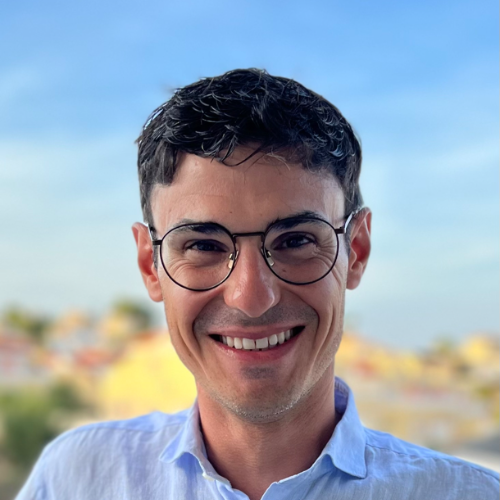The Jason Morgan Early Career Award this
year rewards the significant contribution of Luca Dal Zilio.
Luca
Dal Zilio’s work bridges the physics of earthquakes along convergent margins
across scales, from the mechanics of earthquakes to mountain building
processes. These processes must ultimately reconcile; however, probing the link
between seismic cycles and the geodynamics of subduction remains a difficult
task, one that Luca addresses with his imaginative, yet rigorous, approach.
Luca’s
research tackles the emergence of seismic instabilities, ranging from slow-slip events to megathrust seismicity revealing
relevant properties and scaling. At a larger scale, his work bears insight on the role of seismic deformation in the
long-term processes of plate convergence and orogenesis. Using different
techniques ranging from numerical modeling to GPS data and seismic catalog
analysis, he has shown how the seismic cycle contributes to deformation along
the front of a range of collisional chains such as the Zagros, the Himalayas, and the Alps. This body of work opens new
research paths across the core disciplines of geodynamics, tectonophysics, and
seismotectonics.
A
peculiar characteristic of his, less apparent yet relevant, is his passionate
engagement. Luca Dal Zilio’s overarching goal has always been to provide
insights into the much-needed context for hazard assessment. For the practical
impact of this research, he has been recruited as Seismic Risk Assessment
consultant for UNICEF (United Nations Children’s Fund) as well as the Swiss Embassy in Nepal, at the time of the
recent disastrous seismic event. He has also been selected for the Global Young
Scientists Summit, the recipient of Nature Geoscience’s Geostory award
and TEDx Events’ speaker, occasions in which Luca has advocated for the
importance of tectonophysics for the safety of the broader community.
All my congratulations to Luca, a
deserving recipient for this award and a valuable member of our community.
—Fabio
Capitanio, Monash University, Melbourne, Vic., Australia
Receiving the 2023 Jason
Morgan Early Career
Award from AGU is an extraordinary honor. I am deeply thankful to Fabio
Capitanio (Monash University), Roland Bürgmann (University of California,
Berkeley), Jean-Paul Ampuero (Geoazur Laboratory), and my former Ph.D. adviser,
Taras Gerya (ETH Zürich),
for their invaluable support and nomination. I thank the committee and AGU for
this recognition.
My
interest in active faults started during my undergraduate studies at the
University of Padua, where I was introduced to numerical modeling and
subduction dynamics by Manuele Faccenda. This passion was further fueled at ETH
Zürich
in a challenging Ph.D. project, mentored by Ylona van Dinther and Taras Gerya,
where I attempted to bridge long-term tectonics with earthquake processes.
Ylona encouraged me to always strive for excellence, while Taras generously
shared his vast knowledge, instilling in me the confidence to tackle complex
challenges. I am profoundly grateful for their mentorship and friendship. A key chapter
of my Ph.D. journey
unfolded at École Normale
Supérieure (ENS) in Paris, where Romain Jolivet
patiently taught me how to use geodetic
data to measure elastic strain
accumulation along the Himalaya—a region I hold close to my heart. Moving to
Caltech opened the doors to further deepening my understanding of earthquake
physics, thanks to the guidance of
Nadia Lapusta and Jean-Philippe Avouac. Their mentorship has been instrumental
in broadening my scientific creativity while maintaining a rigorous approach.
My return to ETH Zürich
would not have been possible without Domenico
Giardini, who offered me the opportunity to coordinate a group of
talented modelers to understand how to trigger small earthquakes, enriching my
experience as a research scientist and supervisor. Since then, I’ve been very
fortunate to connect with some exceptional faculty, postdocs, and students.
Since
my first year as his Ph.D. student,
to this date, Fabio has never ceased to support me, advocate for me, and
challenge me as a scientist. His reminders to enjoy the process and have confidence have been priceless, especially in moments
of self-doubt. As I prepare
for the next chapter, I express my gratitude to all mentors and friends
for their wisdom and friendship. I sincerely hope to be able to do the same for
the students I will supervise, keeping their advice
in my mind. Finally, this academic journey
wouldn’t have been possible without the support from my
family, friends, and my partner, Sarah.
—Luca Dal Zilio, ETH Zürich,
Zürich, Switzerland



